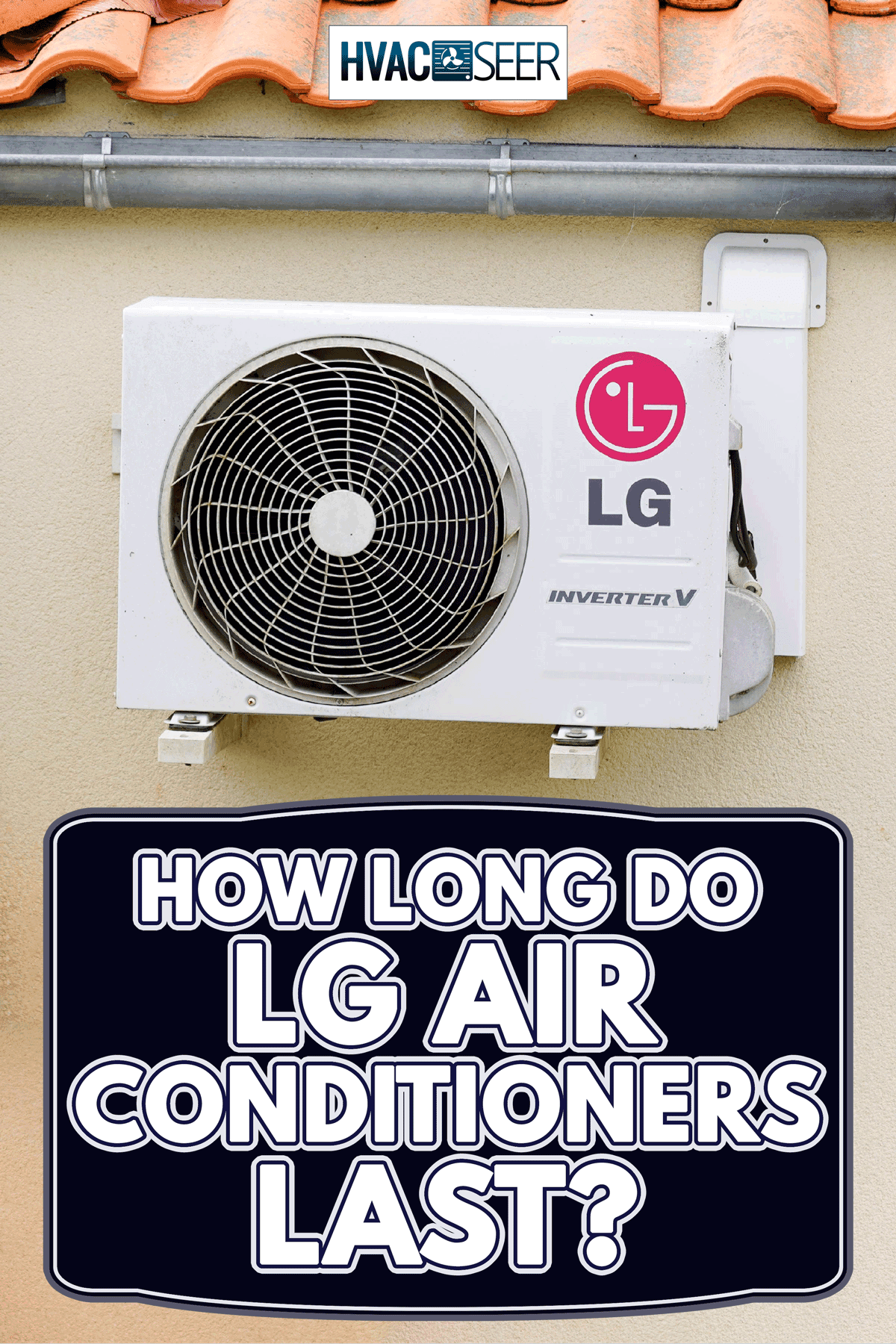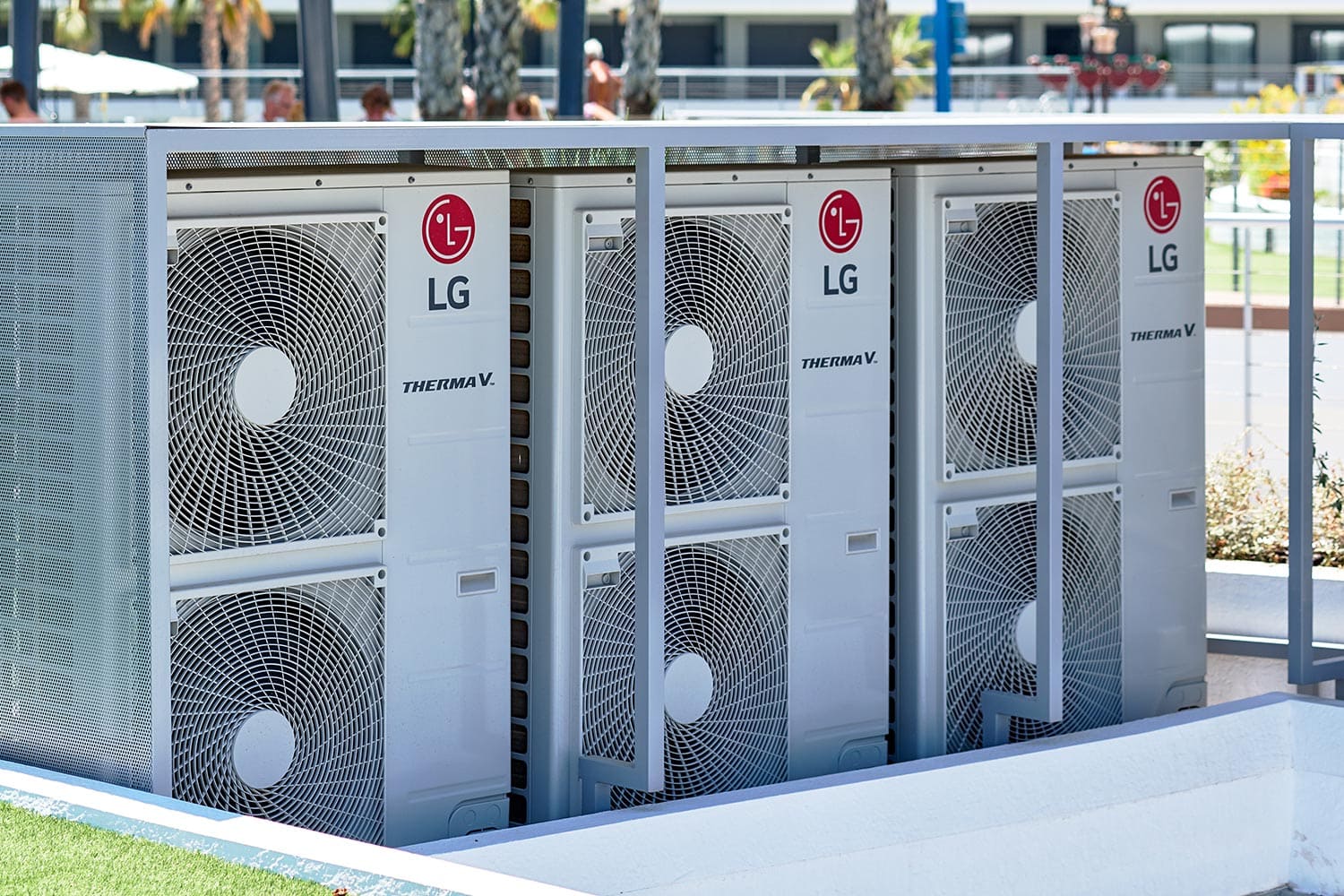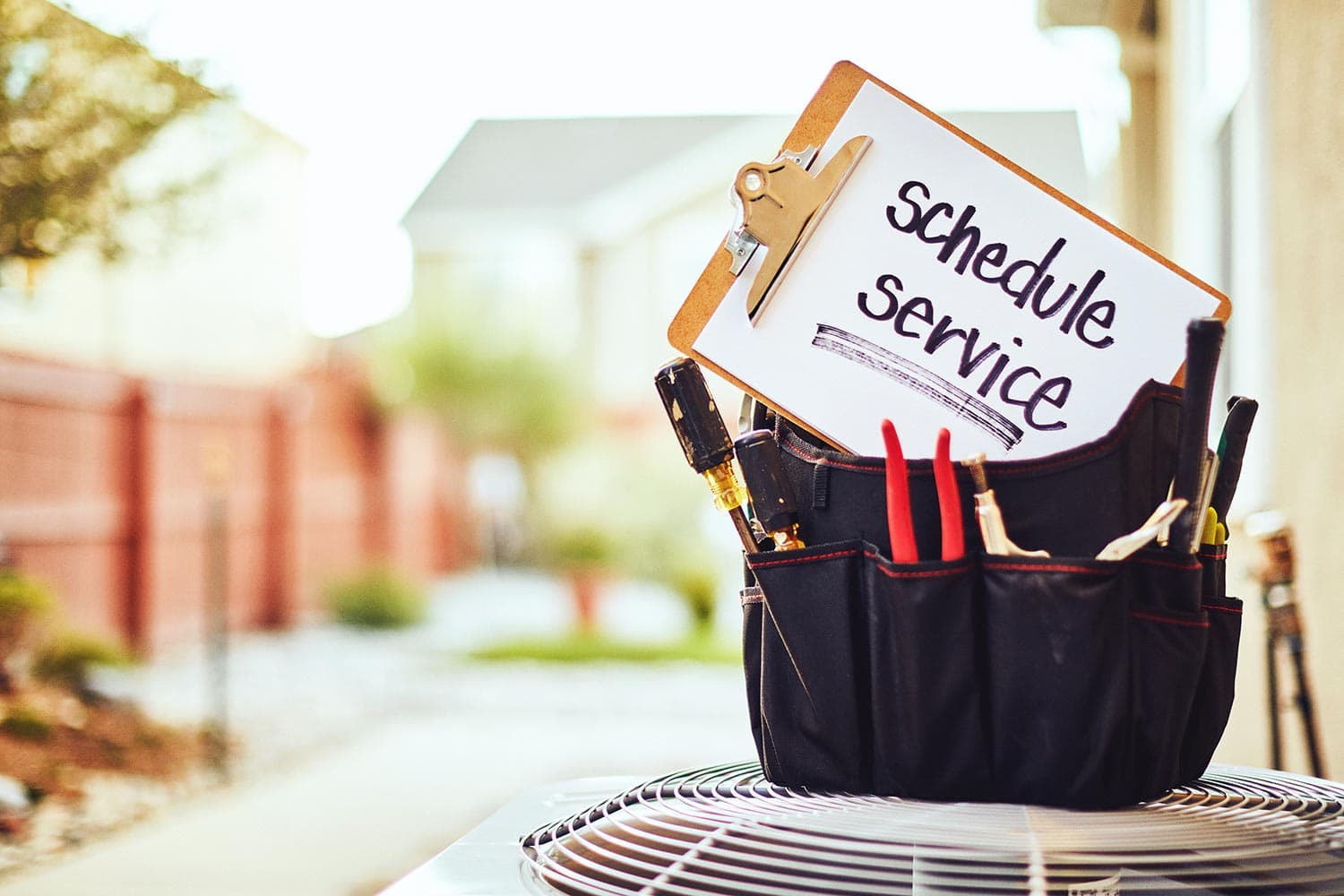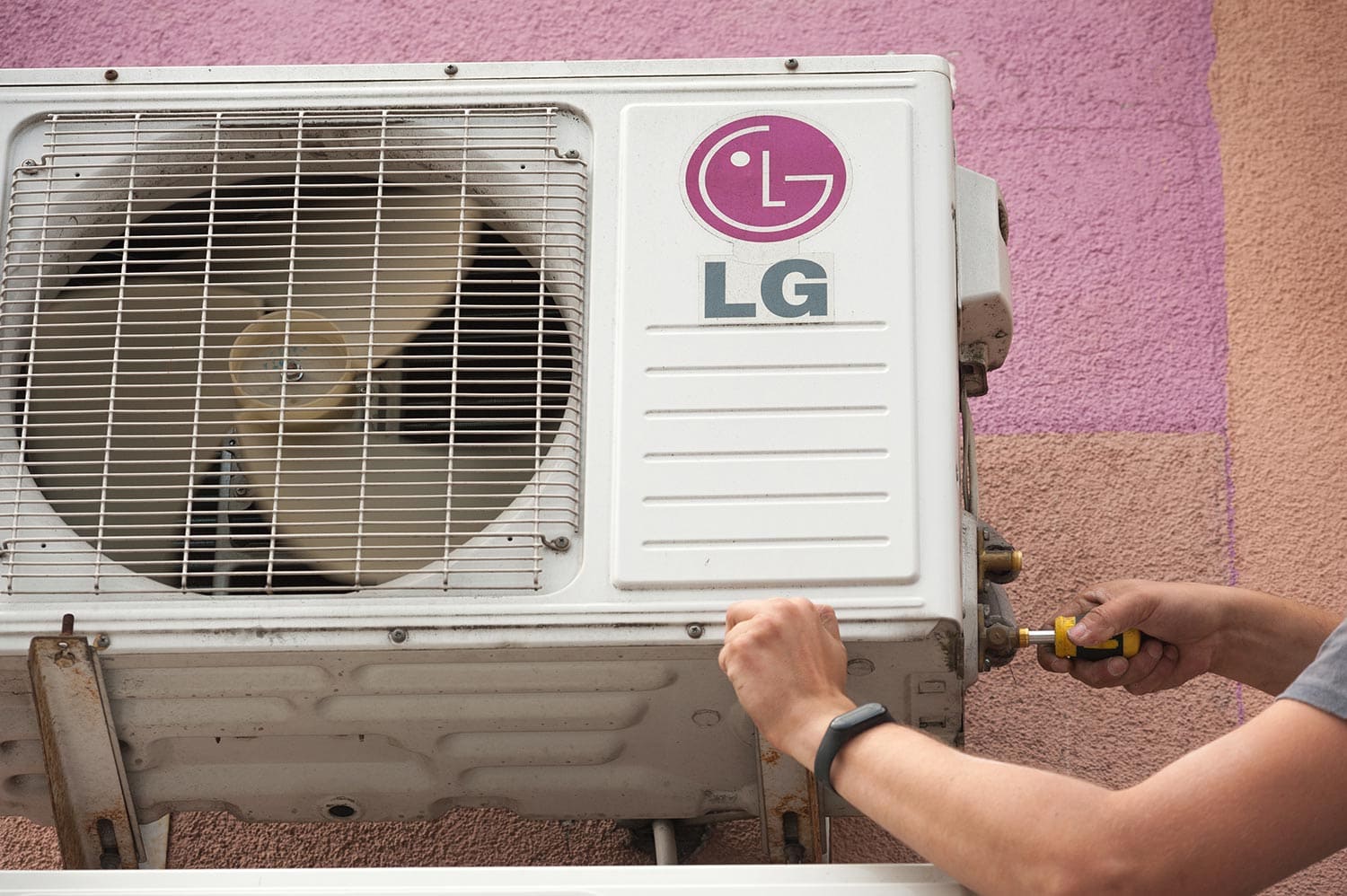Air conditioners, unlike furnaces, are frequently outside and exposed to extreme temperatures throughout the year, reducing their lifespan. How long do LG air conditioners last? Based on our research, this information will be of great help to you.
Air conditioners today have a lifespan of 15-20 years and 10-12 years for older models. The health and performance of your air conditioner are determined by a variety of things, including how well you maintain it during its lifetime. If you ignore the yearly AC tune-ups, your air conditioner's lifespan may be cut short.
The frequency at which you use the unit, the amount of heat and humidity in your area, and whether or not the unit was properly sized for your home all have an impact on its lifespan. Worry not, because LG electronics provides a limited 10-year warranty. Keep reading to learn more about maintaining your LG air conditioner model.

How long do AC units usually last?
When an air conditioner reaches the end of its useful life, it will break down more often and consume more energy than is necessary. Whether you're thinking about air conditioner maintenance or considering a new unit, you've probably come across one question: "how long do air conditioners last?"

AC units have fewer than 10 years to more than 25 years. Air conditioners are not indestructible. They must be replaced in due time. As a result, prospective consumers should distinguish between different timeframes of air conditioners.
Even the most powerful portable air conditioner will run out of power after ten years. High-quality mini-split AC systems, on the other hand, can survive for decades if properly and frequently repaired.
As a result, if you have an older air conditioning system, it should be inspected more frequently. However, this will increase your overall costs. As a result, replacing an existing system becomes more financially viable than continuing to fix the old one.
Proper Sizing and Installation
Air conditioner efficiency is mostly determined by proper sizing and installation. A unit that is too large will not effectively remove humidity, while a unit that is too small will struggle to maintain a pleasant temperature on the hottest days. Improper unit placement, insulation, and duct installation can all significantly reduce efficiency.
Does LG air conditioner have a warranty?
The warranty periods vary across manufacturers. An air conditioner typically lasts for 10 to 15 years. Ideally, your warranty should cover at least the majority of this time. The guarantee for air conditioners is typically 5+ years.

What components are covered by your warranty?
Every warranty comes with a set of standard components. They are:
- To whom will the warranty be extended? For instance, if you purchase an air conditioner, the warranty is included. Is the warranty transferrable if you resell it, though?
- A full description of what is and is not covered by the warranty.
- What are the warranties' exclusions?
- When does it become void? Is your warranty invalid if it is not installed by an "authorized technician"?
- What are your options as a consumer if the warranty isn't honored?
How do you communicate with your manufacturer?

When you buy an electronic product, be sure you know how to contact the manufacturer to file a complaint, request service, or even have it installed. The brand you choose must make it easier for you to contact them whenever you need them. It even includes an online registration and tracking system, making it incredibly easy for clients to not only register complaints but also track them.
How do I know if my air conditioner needs to be replaced?
If your air conditioner breaks down, you may only require a minor repair, even if your unit isn't the most recent model. A new air conditioner is a good investment. So, unless your present unit isn't working well and you can't fix it without spending a lot of money, it's usually better to have it repaired.
There are several aspects to consider when considering whether to repair or replace an air conditioner. The age, performance, and effectiveness of the unit, as well as the cost of any necessary repairs, are all issues to consider. A simple repair and routine maintenance can sometimes extend the life of old equipment by many years.

If the cost of your energy bills is rising, investing in a new and more energy-efficient unit could be a good long-term investment. When determining whether to repair or replace your existing air conditioning unit, consider the following factors:
The Age of the Air Conditioner
The air conditioning unit has a 10- to 15-year lifespan. If your unit is more than ten years old, the warranty has expired, you're having more frequent difficulties, or the repair estimates you've received are excessive, buying a new one may be the better option.
If your air conditioner is less than ten years old, has been well-maintained, and has not had a severe breakdown, it may be wiser to get it repaired.
The Price of Repair
If you have a relatively recent air conditioner, it rarely makes financial sense to replace it unless the cost of maintenance is in the hundreds of dollars. The "5,000 rule" is a broad guideline used by many HCAV professionals. Multiply the age of the unit by the cost of repair, and if the total exceeds $5,000, it's probably time to replace it. Repair it if it's less.
Environmental Impact and Availability of Refrigerants
R-22 Freon refrigerant is used in many older air conditioning units. It will no longer be lawful to produce this in the United States after 2020. As a result, any available supplies are far more expensive than the commonly used R-410a refrigerant.
Not only will any refrigerant repairs be much more expensive and possibly even difficult to complete, but the substance is also harmful to the environment.
Is it worth repairing an air conditioner?

If your air conditioner is ten years old or older, runs continually, fails to effectively chill your home, and causes your energy bills to be higher than they should be, it is most likely inefficient. Consider replacing it. Newer AC systems can save you roughly $200 per year on energy bills, despite their hefty replacement prices.
The age of your air conditioning machine should be the first factor when considering whether to repair or replace it. Is the air conditioning equipment two years old? Ten years old or more? AC units older than ten years should generally be replaced with newer, more efficient types.
Why is that? Older units are less energy-efficient and have lower Seasonal Energy Efficiency Ratios (SEER) than newer versions.
Therefore, air conditioners that require frequent repairs may indicate that they should be replaced. If your air conditioner is continually breaking down, rarely effectively cooling your home, and always operating loudly, it's time to replace it. If critical components like the compressor or condenser fail, you should consider replacing the unit.
Conclusion
Air conditioners are costly, and it can be tricky to say what to do if yours begins to malfunction. Though this advice should have been helpful, it's always a good idea to get a few quotes and opinions from a few contractors. If you found this article useful, please consider supporting us by reading some of our other articles.
